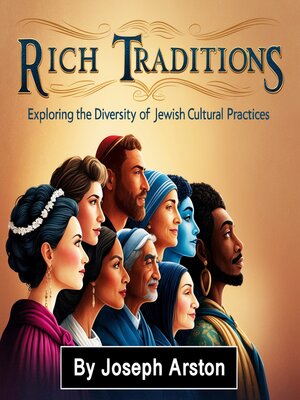Rich Traditions
audiobook (Unabridged) ∣ Exploring the diversity of Cultural Practices
By Joseph Arston

Sign up to save your library
With an OverDrive account, you can save your favorite libraries for at-a-glance information about availability. Find out more about OverDrive accounts.
Find this title in Libby, the library reading app by OverDrive.



Search for a digital library with this title
Title found at these libraries:
| Library Name | Distance |
|---|---|
| Loading... |
Cultural traditions are the backbone of societies, shaping identities, fostering unity, and preserving the past for future generations. These traditions encompass a vast array of practices, from rituals and customs to art and language, each carrying deep significance within a community. Understanding the foundation of cultural traditions requires exploring their origins, the role of storytelling, and the importance of rituals in maintaining societal cohesion.
The origins of cultural practices date back to early human civilizations, where communities developed customs to mark significant life events, seasonal changes, and social hierarchies. Many traditions emerged as a means of survival, guiding agricultural practices, hunting techniques, and community governance. Over time, these customs evolved, influenced by migration, conquests, and technological advancements. Despite these changes, the essence of cultural traditions remains rooted in the need for connection, identity, and continuity. Oral traditions, written records, and archaeological discoveries have provided valuable insights into how ancient societies passed down knowledge and customs, ensuring that cultural heritage persisted through generations.
Storytelling has played a crucial role in preserving and transmitting cultural traditions. Before the widespread use of writing, oral narratives served as a primary means of educating younger generations about their history, beliefs, and values. Folktales, myths, and legends not only entertained but also reinforced moral lessons and social norms. In many indigenous cultures, storytelling was a communal activity, where elders shared wisdom through spoken word, music, and performance. Even today, literature, films, and digital media continue to serve as powerful tools for maintaining cultural identity, adapting traditional narratives to modern contexts while keeping their essence alive.







